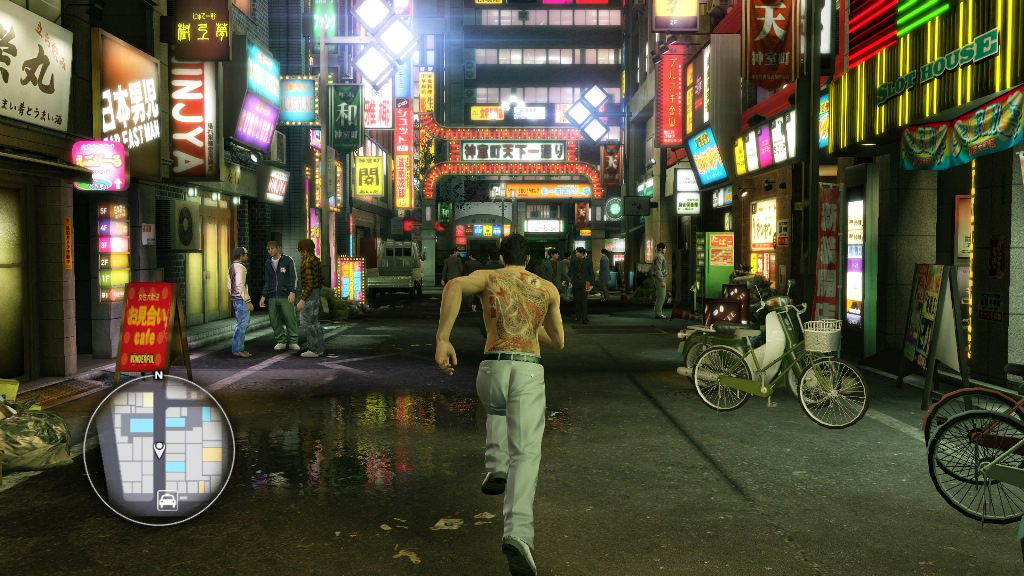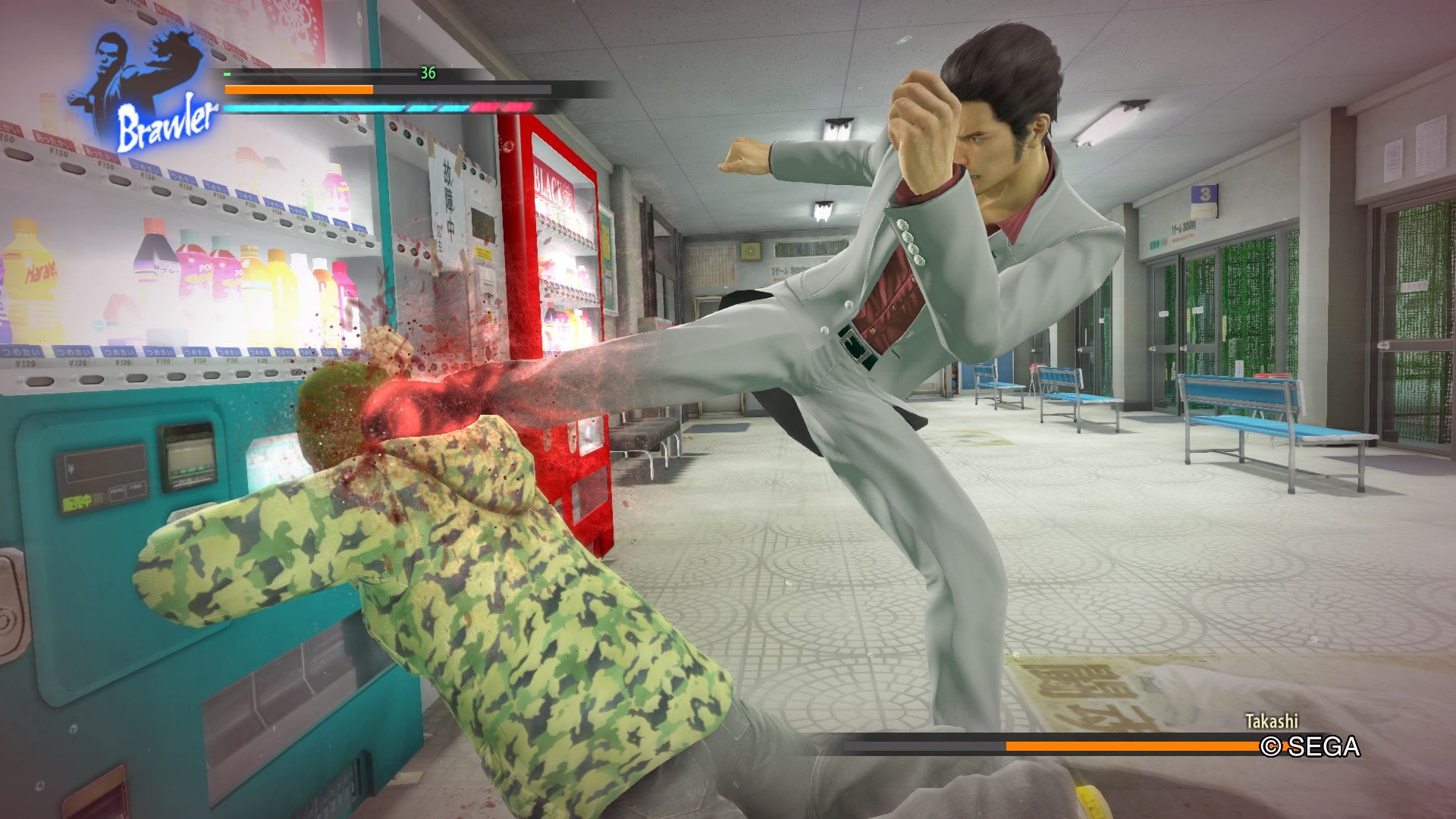
In recent times, our industry has been overwhelmed by remakes, remasters and re-releases, as publishers scramble to capitalise on the ‘rose-tinted glasses’ of a now maturing player base while employing as little developmental effort as possible. It seems that all it takes to release a game these days is a little capital and the rights to a 90/00s gaming IP. Why would you bother writing new stories? Just slap some HD textures on a title that people loved when they were seven-years-old, and they’ll pay AAA money for it all over again.
To be fair, SEGA didn’t start the trend; they’re just reacting to it. Yakuza Kiwami, their remake of the original Yakuza title on PS2, is more likely a continuation of the recently released prequel, Yakuza 0, than an out-of-the-blue revenue raising scheme. Another follow-up, the remake of Yakuza 2, has just been announced too, so it seems that they’re trying to revitalise the Yakuza franchise as a whole. As someone who never touched the original, it was with a mixture of anticipation and prejudice that I sat down to play this remake of a cult classic.
Yakuza Kiwami is still a rich and engrossing journey to undertake. Its world is vibrant and detailed, filled to bursting with realistic locations, addictive mini-games and an eclectic cast of characters who are simultaneously over-the-top and basely relatable. The hustle and bustle of Tenkaichi Street in the rain is incredibly charming, warranting the exploration of every alleyway and a conversation with every NPC that will listen.

Through the eyes of series protagonist Kazuma Kiryu, Yakuza Kiwami tells a complex and distinctly Japanese tale of honour, deception and betrayal that spans a decade. Though steeped in tragedy, Yakuza never takes itself too seriously. The grand drama is punctuated by moments that are much lighter, even comical, which serve to pace the emotional weight of the story perfectly and provide relief to the player whenever they may need a break from all the killing.
Strong characters are the backbone and driving force of this plot, and I was drawn in by a diverse range of personalities and fashion styles that injected such flavour into every scene. Voice acting performances are of a golden standard, particularly when partnered with the most subtle, naturally flowing dialogue I’ve ever seen in a Japanese game. Yakuza, for all of its narrative complexity, is easier to follow in Japanese than Metal Gear Solid V was in English, and far more rewarding for the lover of storytelling.
The game’s mechanics are simple and fundamentally the same as they were in the original. Your time is split between exploration, combat, and frequent cutscenes that advance the plot. Side-stories and a myriad of mini-games, challenges and collectables allow you to not only break up the gameplay experience but also develop Kiryu’s abilities with new fighting techniques and equipment.
The only downside to exploration is that Yakuza Kiwami’s open-world is only a fraction of the size that we’d expect from a modern adventure. On top of that, while shops and buildings appear lively and populated, the majority of them cannot be entered. It’s especially jarring since such a detailed world promotes organic exploration, only to cut you off at a doorway or an invisible wall.

Combat is a little wonky, due mostly the camera seemingly working against you at every opportunity, particularly indoors. Controls have been updated to feel sharper and more responsive, making for satisfying combos and a high skill-cap for the dedicated among us. The various fighting styles available to Kiryu bring a fine layer of strategy to every encounter, as you adjust for the strengths and weaknesses of your enemy, whether you’re surrounded, whether they have a weapon, and many other factors that the game cleverly introduces over time.
Graphics have seen a significant overhaul, both texturally and in post-processing. Yakuza Kiwami renders beautifully on PS4 hardware, and what little age can be seen is made up for by a bold and enchanting art style. The neon glow of street signs bounces across wet pavement and vehicles, and, combined with eccentric character outfits, conjures an almost superhero-like atmosphere. Stellar presentation of the UI and other elements only amplifies what is already an impressive visual experience.
The game’s sound team deserve particular mention, as effects, ambient and environmental sounds are among the best I’ve ever heard in a game. The soundtrack has, at the very least, been re-mastered, and accompanies Yakuza Kiwami perfectly with the signature Japanese blend of action and drama.

Though I’m not particularly enamoured with the idea of re-releasing old games, SEGA has done an outstanding job of modernising this cult classic adventure. Yakuza Kiwami is as faithful as possible to its source while also offering a number of subtle quality of life changes that will make the experience a little smoother than it was in 2005. With an outstanding narrative, engrossing world and slick gameplay, this is a worthwhile Yakuza title for newcomers and returning fans alike.











